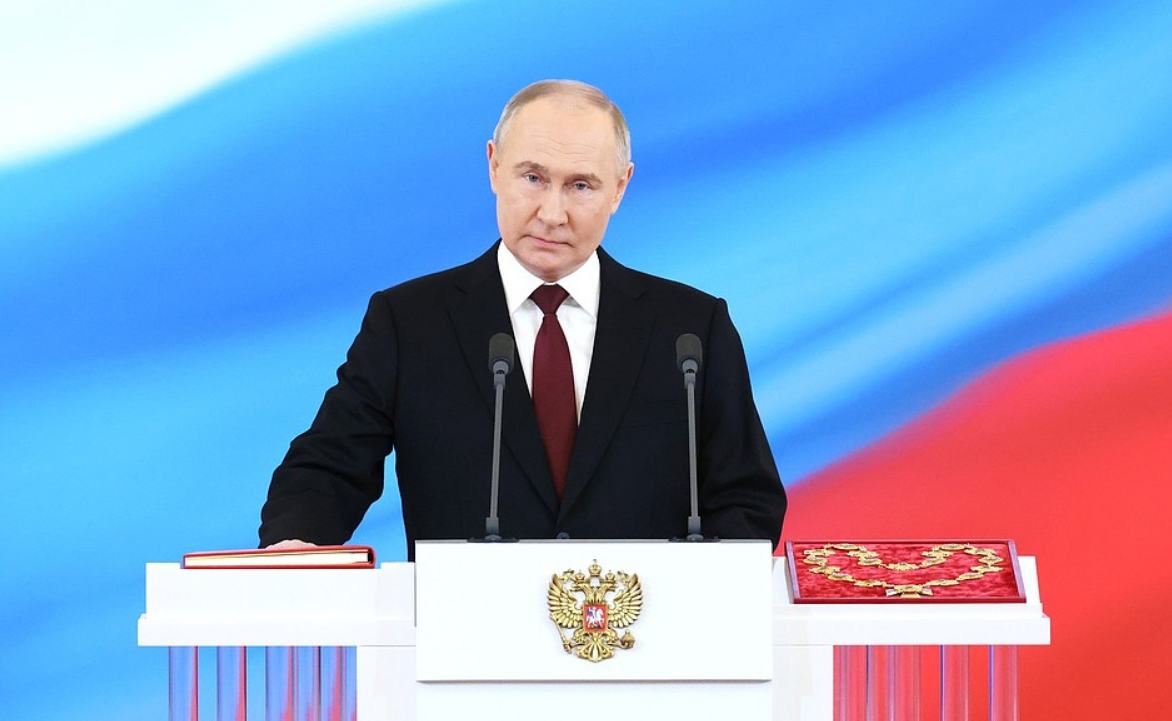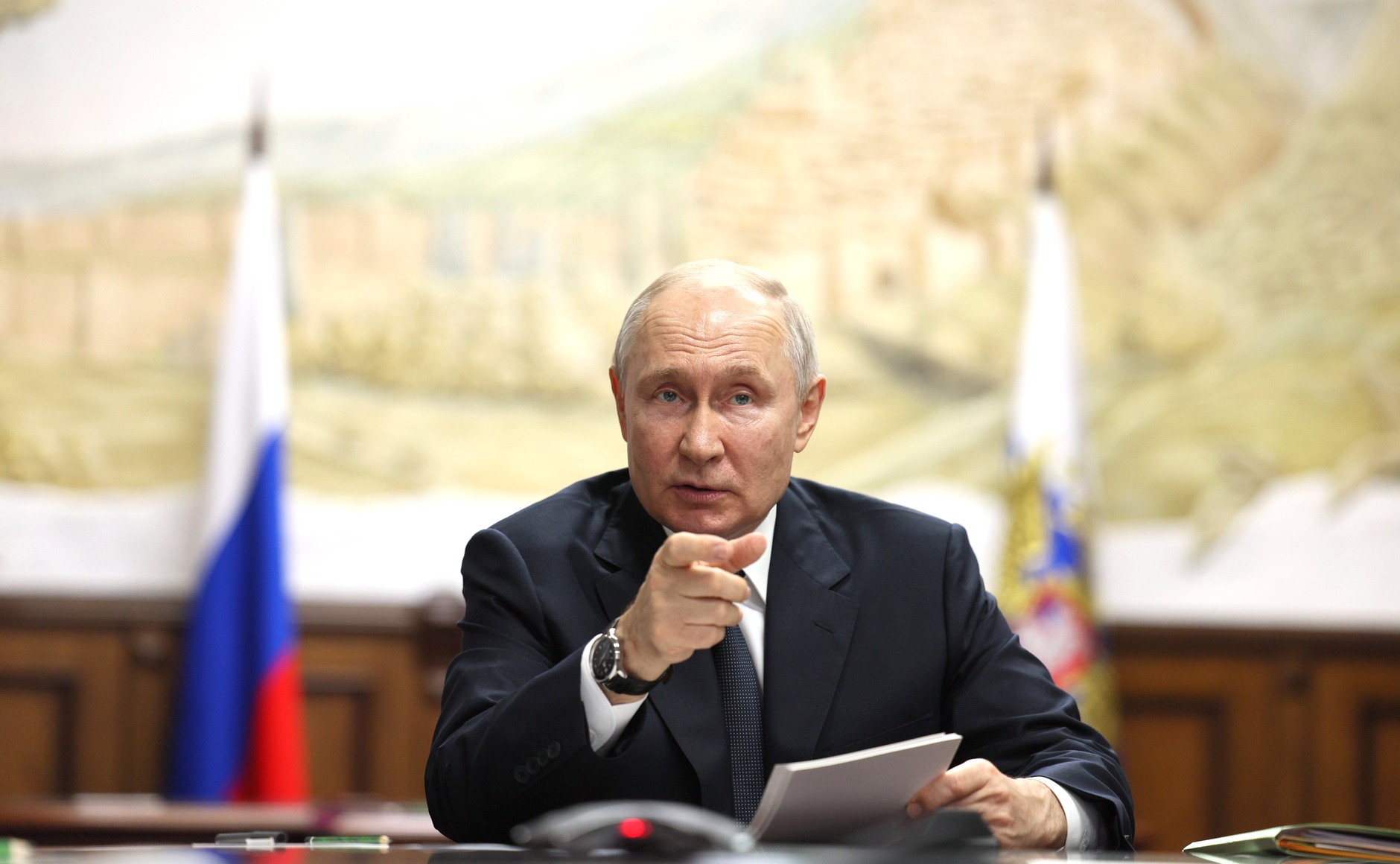Russia
Brittney Griner’s trial scheduled to begin July 1
WNBA star detained in Moscow airport in February

A Russian court on Monday said detained WNBA star Brittney Griner’s trial will begin on July 1.
The Associated Press reported the Phoenix Mercury center and two-time Olympic gold medalist who is a lesbian and married to her wife, Cherelle Griner, will remain in custody through the duration of her trial.
Officials at Moscow’s Sheremetyevo Airport in February detained Brittney Griner after customs inspectors allegedly found hashish oil in her luggage. The State Department has determined that Russia “wrongfully detained” her.
Secretary of State Antony Blinken on May 14 spoke with Cherelle Griner.
Officials with the State Department’s Office of the Special Presidential Envoy for Hostage Affairs and Bureau of Educational and Cultural Affairs on June 13 met with Brittney Griner’s teammates to discuss her detention and efforts to secure her release.
Brittney Griner on June 18 was unable to speak with her wife on their fourth anniversary because the phone at the U.S. Embassy in Moscow that she called went unanswered. A State Department spokesperson later admitted a “logistical error” prevented Brittney Griner from speaking with Cherelle Griner.
Brittney Griner faces up to 10 years in prison if she is convicted.
The Human Rights Campaign and the Council for Global Equality are among the dozens of advocacy groups who signed a letter to President Joe Biden and Vice President Kamala Harris last week that urged them to do more to secure Brittney Griner’s release.
Russia
Vladimir Putin takes office for fifth term as Russia’s president
Kremlin’s crackdown on LGBTQ people expected to continue

On Tuesday, Vladimir Putin took his oath of office becoming the second ever longest serving leader of the modern Russian state since Soviet dictator Joseph Stalin, who held power from 1922 until his death in 1953.
Putin’s tenure in office has been marked by his acquisition of concentrated political power in part due to his eradication and imprisonment or the deaths of his political opponents, such as his rumored unproven involvement in the assassination of fierce Putin critic Boris Nemtsov on Feb. 27, 2015, just steps away from the gate to the Kremlin, and more recently in the prosecution and imprisonment of another high profile Putin critic, Alexei Navalny, who died on Feb. 16 at a penal colony north of the Arctic Circle.
Putin ordered military operations in August 2008, which led to the Russo-Georgian War and diplomatic relations were broken. To this day, the two countries have maintained no formal diplomatic relations. Then in February and March 2014, Russian troops at his direction invaded the Crimean Peninsula, part of Ukraine, and annexed it. The resulting hostilities also spread to the far-eastern Ukrainian oblasts, [provinces] which culminated with Russia invading Ukraine on Feb. 24, 2022, an escalation of the Russo-Ukrainian War that started in 2014. The invasion became the largest attack on a European country since the end of World War II in 1945.
As the war drags on Putin’s threats of military escalation against NATO countries and use of battlefield nuclear weapons has created a tense relationship with a majority of the European Union as well as with the United States. Russia has been heavily sanctioned by the West and is turning to other totalitarian regimes like China, Iran, and North Korea for support.
In his inaugural speech Putin made oblique reference to his oft stated desire to recreate a hybrid of the former Soviet Union:
“In these solemn and crucial moments of assuming the office of the president, I would like to extend my heartfelt gratitude to the citizens of Russia across all regions of our country, as well as those living in the historical territories of Russia who have won their right to stand united with our Motherland.”
The Russian president then thanked the forces fighting in the invasion of Ukraine saying:
“I humbly honor our heroes, the participants in the special military operation, and all those who are fighting for our Fatherland. I would like to thank you again for the trust you have placed in me and for your unwavering support. These words are directed to every citizen of Russia.”
On the domestic front Putin has stifled media outlets with draconian laws passed designed to keep the Russian population largely ignorant of the cost both human lives and governmental spending as the warfare in Ukraine drags on and losses to the Russian military continue.
The Associated Press reported neither the U.S., U.K. nor German ambassadors attended. The U.S. Embassy said Amb. Lynne Tracy was out of the country on “prescheduled, personal travel.”
A handful of EU envoys attended even though top EU diplomat Josep Borrell said he told them “the right thing to do is not to attend this inauguration,” because Putin is the subject of an arrest warrant by the International Criminal Court for war crimes, accusing him of personal responsibility for the abductions of children from Ukraine.
In his speech Putin issued a veiled threat to critics of his regime that dissention would not be tolerated:
“We can see that the atmosphere in society has changed, and how much we now value reliability, responsibility, sincerity, integrity, generosity, and courage. I will do everything in my power to ensure that those who have displayed these admirable human and professional traits, and who have proved their loyalty to the fatherland through their deeds, achieve leading positions in state governance, the economy and all other spheres.
We must ensure reliable continuity in the development of our country for decades to come and bring up new generations who will strengthen Russia’s might and develop our state based on interethnic accord, the preservation of the traditions of all ethnic groups living in Russia, a civilizational nation united by the Russian language and our multi-ethnic culture.”
The Russian president has also targeted the country’s LGBTQ community with passage of multiple laws that forbid public mention or acknowledgment of queer Russians. In his speech he emphasized his commitment to maintaining “family values.”
“Our top priority is the preservation of the people. I am confident that the support of centuries-old family values and traditions will continue to unite public and religious associations, political parties, and all levels of government.
Our decisions regarding the development of the country and its regions must be effective and fair and must promote the prosperity of Russian families and improve their quality of life,” he said.
The Wilson Center, a nonpartisan think tank in D.C., noted recently:
“Escalating state discrimination against the LGBTQ+ community in Russia is directly informed by the Putin regime’s struggle to maintain legitimacy and public support, especially as Russia’s war in Ukraine drags on. Russian federal elections are scheduled for 2024, and officials are reportedly planning to project record levels of public support for Putin.”
The war in Ukraine and discrimination against the LGBTQ+ community are both popular policies among the socially conservative interest groups that make up Putin’s strongest base of support, and Russian policymakers draw clear connections between the Kremlin’s narrative that Russia is fighting Western ideology by proxy in Ukraine and the Kremlin’s attack on the LGBTQ+ experience in Russia.
Putin’s inaugural speech today signaled his future intentions on conducting the war in Ukraine and his ongoing persecution of LGBTQ+ Russians.”
Russia
Transgender journalist who enlisted in Ukrainian military designated a terrorist by Russia
Sarah Ashton-Cirillo is from the US

A transgender journalist from the U.S. who enlisted in the Ukrainian military has been designated a terrorist by Russia.
“The Kremlin added me to Russia’s official international terrorism list,” wrote Sarah Ashton-Cirillo in a Feb. 5 post on her X account.
Russia launched its war against Ukraine on Feb. 24, 2022.
Ashton-Cirillo was a journalist when she began to cover the Armed Forces of Ukraine’s Kharkiv Defense Forces. She later enlisted and is now a junior sergeant. Ashton-Cirillo has also traveled to the U.S. several times on behalf of the Ukrainian Defense Ministry.
Shrapnel from a Russian artillery shell wounded Ashton-Cirillo last February while she was working as a senior combat medic in a trench near Kreminna, a city in eastern Ukraine.
“For Russia to name me as an officially sanctioned terrorist is laughable enough, however what was truly indicative of the hate coming from the Kremlin’s regime was that every press release and article in Russia about my being placed on Putin’s terrorism list was prefaced with the fact that I am trans,” Ashton-Cirillo told the Washington Blade on Friday. “The Russian government is genocidal and hate ridden and this is why it will collapse.”
Russia
Putin signs law banning transition therapy and surgery in Russia
Lawmakers approved measure earlier this month

Legislation that will effectively ban the existence of transgender Russians was signed on Monday as expected by Russian President Vladimir Putin.
The new law, which takes effective immediately, was passed earlier this month by the State Duma, the lower house of the Russian Parliament, and then last week by the Federal Council, which is its upper body.
The law now bans Russians from changing their gender on official government identity documents including internal and external passports, driver’s licenses and birth certificates, although gender marker changes had been legal since 1997.
Medical healthcare providers are now banned from “performing medical interventions designed to change the sex of a person,” including surgery and prescribing hormone therapy.
The law, which human rights organizations have labeled draconian and barbaric, also bans individuals who have undergone gender reassignment from adopting children and annuls marriages in which one of the partners is trans.
LGBTQ activists have warned that the law will lead to a further increase in already high rates of suicide and suicide attempts among trans Russians. Worse, say sympathetic physicians and trans rights advocates, it will foment an underground market for surgeries and medications, which are dangerous as unproven drugs or outright fake drugs may cause irreparable harm.
LGBTQ activists also said that this law will lead to an increase in attempted suicides among trans youth unable to access medical care.
“The way how these people see their future is collapsing,” Yan Dvorkin, the head of Center-T, a group that helps trans and nonbinary people in Russia, said in an interview with The Moscow Times earlier this month.
During debate over the law, Deputy Duma Speaker Pytor Tolstoy, a co-sponsor of the legislation, pointed out that banning the “practice of transgenderism” was in the interest of national security.
The diagnosis of “transsexualism,” he added, refers to gender identity disorders and is the basis for recognizing a citizen as unfit for military service. In addition, “we must not forget that by changing the sex of one of the partners, a homosexual couple gets the right to adopt a child. Unfortunately, there are already such cases in Russia,” he said.
LGBTQ and human rights organization ILGA-Europe issued a statement condemning the actions of the Duma and offered support and solidarity with the Russian trans and queer communities.
“We firmly assert that such legislation flagrantly violates fundamental human rights standards and principles.
ILGA-Europe firmly believe in the inherent dignity and equal rights of all individuals, regardless of their gender identity or expression. International human rights standards, including the Universal Declaration of Human Rights, emphasize that everyone has the right to self-determination, privacy and the highest attainable standard of physical and mental health. Denying trans and gender diverse individuals access to trans-specific healthcare and legal gender recognition blatantly disregards the international human rights framework,” ILGA-Europe wrote.
A young woman who only identified herself to Russian freelance journalist Sergei Dimitrov by the name Elena, told him in an interview in St. Petersburg earlier this month:
“There is no safety anymore, soon they will openly hunt us like swine, we no right to exist they say,” she said.
The young woman also said that since the latest passage of laws including expansion of the Russia’s “gay propaganda” law to include adults last December, coupled with the crackdown by the Russian Federal Service for Supervision of Communications, Information Technology and Mass Media, abbreviated as Roskomnadzor, on any websites and on popular phone apps that cater to LGBTQ people, she has now begun efforts in earnest to leave the country.




















